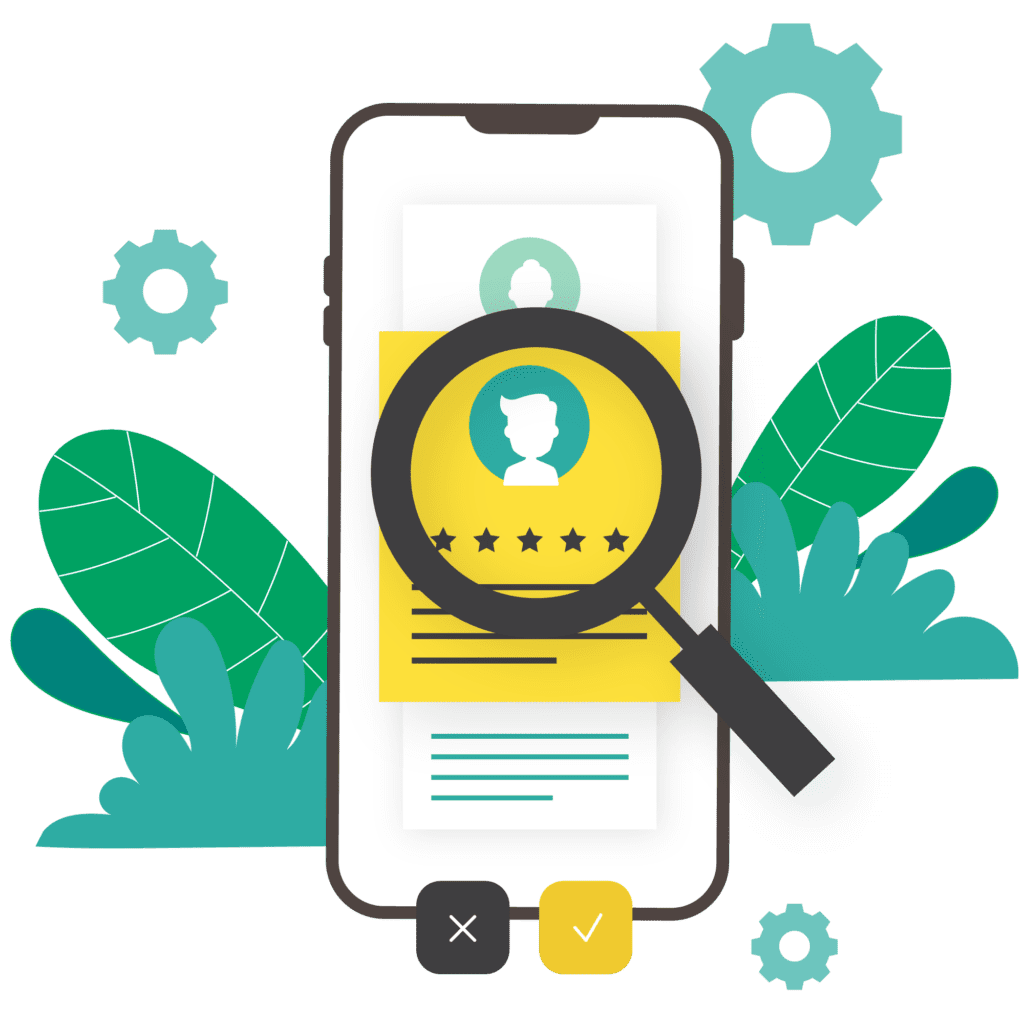A broader view…
At Palette Skills, we’ve always taken a broader view of upskilling and talent. That’s because we know that the upskilling journey is different for different people. No two participants come into our upskilling programs with the same background, or even the same goals. It’s this diversity that makes our programs such a source of learning and inspiration, not only for our participants, but for the Palette Skills team as a whole.
This is certainly the case with our successful Programme de spécialisation en automatisation et agriculture numérique, which has now completed its second offering after launching last year in Saskatchewan. The range of participants in the accelerated upskilling program speaks to the fact that digital and precision agriculture is a growing field attracting people from all walks of life. And at the end of another successful offering, we’ve learned that the upskilling journey is more than just about training. It’s about finding a fit in the career of your choice.
That’s what we found out when we sat down to speak with Rouvay Wilding, a recent participant in our digital agriculture program. Rouvay is originally from South Africa, and grew up in a small town not far from Cape Town. She obtained a PhD in genetics at the University of Stellenbosch and enjoyed a successful research and academic career there for 20 years before emigrating to Canada with her husband last year.
Palette Skills: How did you hear about the Automation and Digital Agriculture Specialist program from Palette Skills?
Rouvay: We relocated only just a year ago, so after leaving a long academic career, I took a year off to settle in and get everything sorted. My husband got a job, so I was looking for positions, but not actively looking. But I activated my notifications, and I think it came up through Indeed or LinkedIn. I would highlight things like jobs in agriculture, or in project management, or something in genetics or related to biology. And one day as I was going through my emails, I saw something called a digital agriculture specialist program, and I thought well that seems interesting! So I looked at what they wanted, and then I applied.
Palette Skills: How do you see the balance between your academic and research training, and the practical hands-on aspects of digital agriculture? Do you see these as different, or are they actually quite related to one another?
Rouvay: I think they can complement each other. My training is very technical, but [at the same time] I don’t have the specific skills in digital agriculture that somebody might need. But I have a lot of soft skills that I can bring, and I have the aptitude to pick up those hands-on skills.
Looking at the digital agriculture sector I’ve been exposed to in the program, there are so many aspects to it, so many opportunities, and so many kinds of employment you could look at. You have the hands-on positions, but you could also have a position that’s more about project management, and managing all the different processes. I think you can get into digital agriculture either with the specific skill set that some people are looking for, or you can come with a skill set that you can easily transfer into that sector, because there are opportunities in the field for people with different skill sets.
For me, before I started the program, I thought that I had very specific skills, and that I might not be able to find a fit. But then I saw that whilst we were going through the program, I discovered I had a lot of transferable skills that would be beneficial in the sector. And for me, I think I saw myself at a more senior level rather than doing a lot of the hands-on work myself.
Palette Skills: Given your academic management background, that’s a huge array of soft skills, but there are also a lot of very well developed administrative and management skills that you bring to a new role.
Rouvay: That was my thinking as well, and when I spoke to various people at the networking events in the program, that also came through. Sometimes [employers] are looking for someone with specific technical skills like an agronomist, or someone who works in GIS, but sometimes they need a person who can fill those other types of positions, and they are available, if you look around. And if you know people in the company and in your network, they can keep you in mind when they see a higher level position like that. So I really thought there was potential for me to get into the industry with my skills.
Palette Skills: You mentioned the networking events, and that leads to the next question, which is what did you enjoy most about the program? Were there parts you found really challenging, were there parts that made you excited, or out of your depth, or worried that something was going to be too difficult?
Rouvay: It’s a challenging program, just from a time perspective. I expected it to be challenging because we were forewarned. There are full-time parts that stretch over a day, and then you have additional activities and things you have to work on, so yes, it’s challenging. But it’s also rewarding [when] you put in the effort to do all of those tasks. For example, there was an innovation proposal task that was voluntary, and you didn’t need to do it. But I felt it was important, because whilst I was in the program, I wanted to get as much out of it as I could. I wanted to participate in all the opportunities, even if it meant being really busy.
You have the career coaches who focus on your resume and your job search, and then you have your technical training and assignments, and then you have a business proposal, and the network events. That was challenging, but I was convinced I would reap the benefits.
The program is about digital technology, and I was thankful for the insight it gave me into the digital sector. But what I liked about the program more was the upskilling, and how important that was. For example, I thought I had a good résumé—and I did have a good résumé—but I could make it even better. I had been limited before, because I didn’t have insight from a professional or from someone in the field who could tell me to look at this, or look at that.
Looking back I thought what was most beneficial was the network around me. It’s not just the participants, where you align with certain people, and you get to know them. It’s the Palette Skills team as well, they are part of my network. When I see something I can contact them, and they keep me in mind for things. And the course instructors and the industry speakers we had, all of that has added significant value for me, because it has increased my professional network.
The agriculture sector is quite close-knit in this region. So you speak to one person, and then they talk about another person, and you find out that they’ve met you through another event. It’s not little pockets, there is a lot of interrelatedness, so you get into the industry but you’re not isolated, because the links that you’ve made through things like the digital agricultural program.
Palette Skills: We understand you recently started work as a research manager at the University of Saskatchewan. So first of all, congratulations! Do you have some ideas about what your participation in the digital agriculture program will bring to your new role as a research manager?
Rouvay: The position I am involved with now is about pea breeding and genetics. In the future they will be using digital phenotyping platforms, in addition to using drones and so on. When I had my interview, I spoke about the Palette Skills program and told them about the drone workshop, because I’m now better able to see the scope of this kind of technology. For example, at the [University of Saskatchewan] they share a digital platform with the Global Institute for Food Security (GIFS), and a precision laboratory that does a lot of digital work. My plan is to see what kind of work they are doing, and perhaps form a link between them and my current position.
Palette Skills: The Automation and Digital Agriculture Specialist program is built with industry and producer partners. I wonder if you have any thoughts about what the benefits are for industry and producer partners to be involved with the program?
Rouvay: Well if [producers and industry partners] get involved with the program they can have insight and input into the program. They can suggest upskilling in specific areas, such as developing business proposals, or they can decide if they need managers, or people with hands-on skills. So Palette Skills can respond to industry needs. And these companies get the first look. Industry and producer partners invest time, and they get to say I want the best of this crop. They get a front row seat when it comes to looking at participant’s resumes and then interviewing them and selecting them for positions.
Palette Skills: What would you say to people who are interested in joining the automation and digital agriculture specialist program? What do you think they need to know before they make that decision?
Rouvay: It’s important to know that it’s not a course that’s going to train you in digital agriculture per se. If you want that kind of training you can take an online course and immerse yourself like that. It’s an upskilling program, and it will introduce you to aspects of digital agriculture for sure, but it’s more of an introductory course where you get to know the industry. And to me that’s the benefit of this course, because you get all these add-ons, like the career coaching and the upskilling of your transferable skills.
For example, I knew there would be networking events, and it makes so much sense because it’s about building those networks, building those connections, so it’s great for someone who is new to the industry to get to know the industry players, and for them to get to know you. All the different aspects of the course made it so much more enriching. Of course I knew the program was going to go in-depth into digital agriculture but I didn’t really think about the other things.
I would say to have a positive mindset about where you want to go, and be clear you want to make this change in your career. Be prepared to make the time investment. If you commit to a program of this nature there are a lot of resources that are being thrown your way, because the program makes a lot of investment in teaching you. For you to fully benefit from it, you need to make the investment of your time as well. You have to decide this is something you want to do, and be confident it’s going to change your life for the better.
If the course instructors ask you to attend an event, then attend it. Engage with people so that they get to know you. The program is digital and it’s online so it’s different than getting to know people in person where you can see them, so you need to make your opinions heard, and you need to get the instructors in the industry experts to get to know you. When you build this network and you go out and look for a job they know about you. And when you say I was part of this Palette Skills cohort people will say yes, I saw you there!
So be involved and be active in the program, because that is what is going to benefit you going forward!







